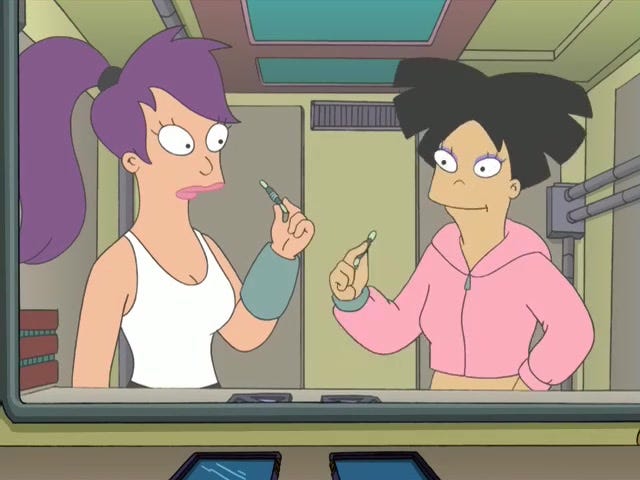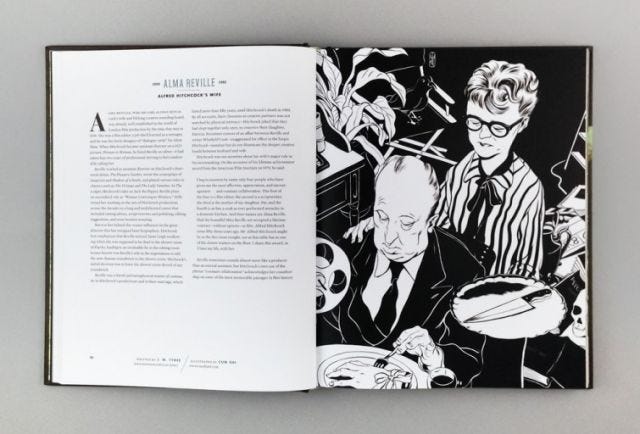So What, Who Cares (vol 2, issue 99) Who's up for the July wrap-up
Hello!
For all you new subscribers, here's the deal: The last newsletter of the month is a digest of everything I covered in the month that's about to end. You can either skip reading this one because, Been there, done that. Or you can now think, Oh, thank Zod. I can delete a backlog of emails with impunity because this one links to everything else. Inbox Zero, you are not some productivity urban legend! You're really real!
*

Revenge of the on-demand economy: Instead of an "affordable luxury" or a little "me time," the manicure is repositioned as something to be crammed into a busy, job-centric schedule. (vol 2, issue 88)
We are still not done dealing with the repercussions of the Aughties' housing bubble. The rising number of people defaulting on their HELOC suggests that people who took out HELOCs a decade ago are in no better financial shape than when they began using their houses as collateral. Banks will bear the brunt of the defaults -- which means that banking customers will be taking it on the chin. (vol 2, issue 89)
Although researchers are alarmed that we're letting search engines supplement our memories, the real issue is that search engines are effectively black boxes that rig content results to boost their bottom line. So what you think you "know" by searching for answers may equal what you could know if the tools you were using weren't weighted in ways you may not be able to see or understand for yourself. (vol 2, issue 89)

It's going to become harder for consumers with food-safety concerns to buy chicken. The U.S. House of Representatives approved HR 2393, which will remove the "country of origin" labels on chicken, pork and beef sold within the United States, and the Senate seems likely to follow suit, thanks to heavy lobbying by Big Food companies, including Pepsico Inc, Tyson Foods Inc, the U.S. arm of Nestlé, Coca-Cola Co, Anheuser-Busch and Kraft Foods. (vol 2, issue 90)
Chicago has become the first city in the U.S. to claim that it deserves revenue from businesses that are not based in the city, but merely used by people or businesses within Chicago. Right now, people who use cloud services are squawking more loudly about this in the press than the companies that provide cloud services. (vol 2, issue 91)
Microsoft teamed up with NASA to test its HoloLens headsets and software in extreme conditions, like undersea bases and the International Space Station. If Microsoft manages to show how well HoloLens works across space or under water, that makes it a compelling technological choice for all manner of industries where hands-on instruction takes place in dangerous environments. (vol 2, issue 92)

Amazon and Wal-Mart engaged in a retail slapfight, and consumers learned the following valuable lessons: The success of PrimeDay on July 15 basically means that retailers can invent giant shopping holidays whenever they please. Also, we learned that back-to-school shopping starts in July now and has shifted to online-first-bricks-and-mortar second. Finally, we learned that Amazon and Wal-Mart really, really want a customer base that pays $50-100 per year for the privilege of free shipping (vol 2, issue 92) (vol 2, issue 93) (vol 2, issue 94)
There is a new look in shoes, and that look is jolie-laide. The data shows that an increasing number of consumers are prioritizing comfort and finding a way to make that value fashionable in footwear. (vol 2, issue 94)
Ethical shopping does little to address systemic regulatory, labor and human rights issues, so quit assuming you can spend your way to change. A well-reported if depressing read, and one in keeping with this newsletter's longstanding coverage of the shifting nature of U.S. retail. (vol 2, issue 95)

The federal government is poised to spend another $85 million to give rural Americans affordable broadband; they're also launching a public-private partnership to bring broadband to public housing. This is considered both an economic investment for businesses and a social investment to close the "homework gap" between poor and middle-class children in the U.S. (vol 2, issue 96)
"Gender contamination" is the notion that people who identify with one gender won't buy a product if it's marketed for another gender. It's especially pervasive among children's toys and it's costing women considerably more money than it does men. (vol 2, issue 97)
People are fleeing the hermetically-sealed, brutalist environs of shopping malls and office parks, and boy howdy, communities can be h-o-s-e-d if they don't have the capital and creativity to figure out how to reuse these abandoned places. (vol 2, issue 98)
*
POP CULTURE: BOOKS I RECOMMENDED THIS MONTH ...
The Jurassic Zookeepers meme reminded me how much I enjoyed Kicked, Bitten, and Scratched: Life and Lessons at the World's Premier School for Exotic Animal Trainers by Amy Sutherland (vol 2, issue 88).

I embarked on a crash re-read of the 1990s Nerd Canon, including Douglas Coupland's Microserfs, Tracy Kidder's The Soul of a New Machine, Stephen Levy's Hackers and Clifford Stoll's The Cuckoo's Egg and Scott Rosenberg's Dreaming in Code (vol 2, issue 88).
Terry Pratchett fans have been familiar with the concept of "cognitive division of labor" ever since it was used as an example of a benefit(?) of long-term marriage in Thief of Time. (vol 2, issue 89)
In-the-know TV fans can get a headstart on a Netflix series in development -- and read a great, girl-led ensemble -- in Brian K. Vaughn's Runaways (issues 1-18). (vol 2, issue 91)
Florence King was writing about spinsterhood before spinsterhood was cool in 1990's Reflections in a Jaundiced Eye. (vol 2, issue 93)
For people who could not care less about Ye Olde Tights And Flights in the funnypages, an examination of comics as a medium for civic journalism, starting with Josh Neufeld's A.D.: New Orleans After the Deluge (vol 2, issue 95).

Those on a quest for the perfect bedtime reading can try The Who, the What and the When: 65 Artists Illustrate the Secret Sidekicks of History, compiled by Jenny Volvoski, Julia Rothman and Matt Lamothe (vol 2, issue 96).
Finally, I recommended two mystery series set in Alaska -- the Kate Shugak mysteries by Dana Stabenow and the Nathan Active mysteries by Stan Jones, because sometimes, your brain needs to take a trip to the last American frontier. For those who always want to be learning, there's the nonfiction exploration of life in frigid places Cold: Adentures in the World's Coldest Places by Bill Streever (vol 2, issue 97).
POP CULTURE: THINGS I THOUGHT WERE WORTH WATCHING THIS MONTH
Give historian David Starkey a listen and/or watch with The Six Wives of Henry VIII and David Starkey's Monarchy (vol 2, issue 89).
Indeed, we sat through -- and enjoyed -- Eric Jonrosh's The Spoils Before Dying (vol 2, issue 90).
And finally, take a trip down memory lane to some retro-YouTube stardom via Kelly's "Shoes" (vol 2, issue 94).
*
Are there typos? Copyediting is the only editing class I did not earn an A in. And I can't change any typos in the archives. I know. It irritates me too.
Suggestions for links gratefully received -- hit me up via Twitter and email.
Feedback is welcome. Again --hit me up via Twitter and email.
Really like this newsletter? TELL A FRIEND TO SUBSCRIBE! Your friends will thank you, and I will thank you, and I think we can all agree the world needs more gratitude, so let's all play our parts. ;)

